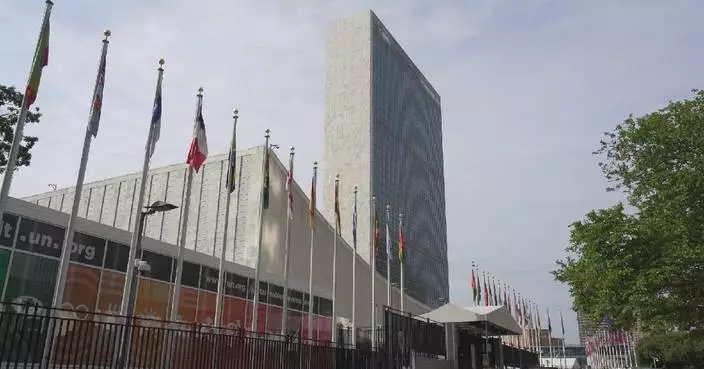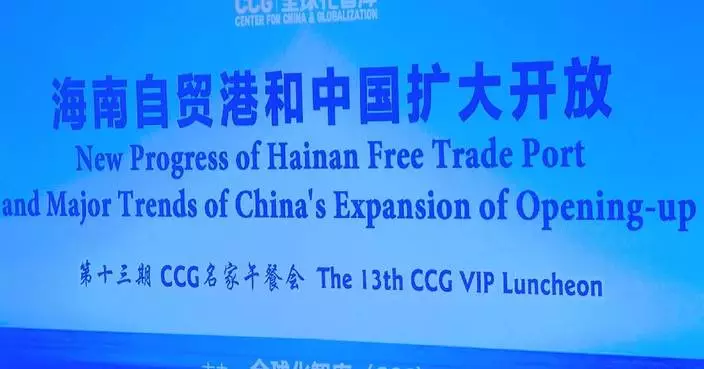U.S. industry insider Dede Nickerson predicts a bright future for film cooperation between China and the United States, which she believes will bring tangible benefits to the film industry of both countries.
With over 25 years of experience living in China, Nickerson has emerged as a key player in bridging the cinematic divide between China and the U.S., facilitating numerous high-profile co-productions between the two film industries. Her portfolio of notable projects includes collaborations with acclaimed director Zhang Yimou on films such as Kill Bill and Hero.
In an interview with China Global Television Network (CGTN) held in Beijing, Nickerson highlighted the massive potential of strategic collaboration between U.S. and Chinese platforms to drive global growth of the Chinese film industry.
"In the winter of 1989, I was asked to be an extra at a film at Beijing Film Studio. Little did I know that I would end up spending much time over the years in my career at Beijing Film Studio as a person in the middle, as a person who I consider myself a bridge builder trying to bring both sides together. If both sides can work together, it can actually serve to make better economics for both," she said.
"If you look at the quality of Chinese films and the quality of Chinese series and the quality of Chinese storytelling through light novels, there's a great opportunity for China today. There's room for some strategic partnerships. If we can get the bigger relationship back on track, there is room for strategic partnerships between the Chinese platforms and the global platforms to bring Chinese content to the world," Nickerson added.

US-China film partnership poised for growth: expert
The China-CELAC (Community of Latin American and Caribbean States) Forum is expected to bring new vitality to the global development and human civilization, said Colombian President Gustavo Petro in Beijing.
Petro, who delivered a keynote speech at the opening ceremony of the fourth ministerial meeting of the China-CELAC Forum on Wednesday, told China Media Group (CMG) in an interview, while giving a special mention of the importance of the forum as a platform to reshape multilateralism.
"This Forum, held here in China, comes at a pivotal moment in history. And that's precisely what makes it so significant. It is taking place at a time when multilateralism is in urgent need of reshaping. There are some powers who believe they can rule the world through intimidation and shows of force. But with China and Latin American and Caribbean (LAC) countries standing together, we must make them understand: history is full of hard lessons. Those who once flexed their military might did not prevail. They may have enjoyed momentary success in the past, but this time, history will not repeat itself," he said.
This year marks the 10th anniversary of the China-CELAC Forum's operation.
Chinese President Xi Jinping stated in his speech delivered at the opening ceremony of the fourth ministerial meeting of the China-CELAC Forum that under the careful cultivation of both sides over the past 10 years, the China-CELAC Forum has grown from a tender sapling into a towering tree.
Petro hailed the relations between China and LAC countries over the past decade, saying that the cooperation is expected to energize the global development and human civilization.
"Yes, exactly, a tree. A strong and thriving tree, with deep and well-developed roots firmly anchored in the earth. There's no doubt that over the past ten years, trade in physical goods between China and LAC countries has grown substantially. China is involved in building the Bogota metro project. China is also constructing a port in Peru, and many other large-scale infrastructure projects are being advanced through Chinese investment and engineering expertise. When we link the cultural and civilizational threads of China and LAC countries, it's as if we are nurturing a living tree, one that grows tall toward the sky and promises to bring new vitality to the human civilization," he said.

China-CELAC Forum brings new vitality to global development: Colombian president






















































